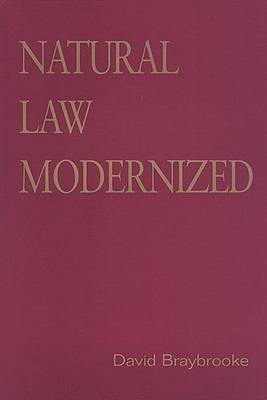Hobbes, Locke, Hume, and Rousseau are classic modern philosophers, widely consulted in matters of ethics and political theory. In this provocative study David Braybrooke challenges received scholarly opinion by arguing that these canonical theorists took St Thomas Aquinas as their point of reference, reinforcing rather than departing from his natural law theory.The natural law theory of St Thomas Aquinas is essentially a secular theory, says Braybrooke. He argues that Hobbes, Locke, Hume, and Rousseau share a core of thought that not only has roots in St Thomas but offers an alternative to other ethical theories now current. According to Braybrooke, this surviving and reinforced core qualifies as an ethical theory viable by the most sophisticated standards, meeting the main challenges of analytical metaethics, and thus standing up to the scrutiny that any ethical theory must undergo in contemporary philosophical discussions. Braybrooke's study takes the reader into a rich and compelling intellectual universe, one in which medieval natural law theory, widely ignored as obsolete, survives robustly through the modern canon and into the third millennium.
- ISBN10 0802035434
- ISBN13 9780802035431
- Publish Date 27 October 2001 (first published 1 January 2001)
- Publish Status Out of Print
- Out of Print 7 February 2017
- Publish Country CA
- Imprint University of Toronto Press
- Format Hardcover
- Pages 351
- Language English
